Houseplants provide numerous benefits, including improving air quality and adding beauty to our indoor spaces. However, they can attract unwanted visitors such as aphids, mealybugs, spider mites, and fungus gnats. These pests damage leaves, stems, and roots if left unchecked. Homemade pest control for houseplants is not only effective but also safe for both you and your plants. Plus, it’s a great way to avoid harsh chemicals that harm the environment.
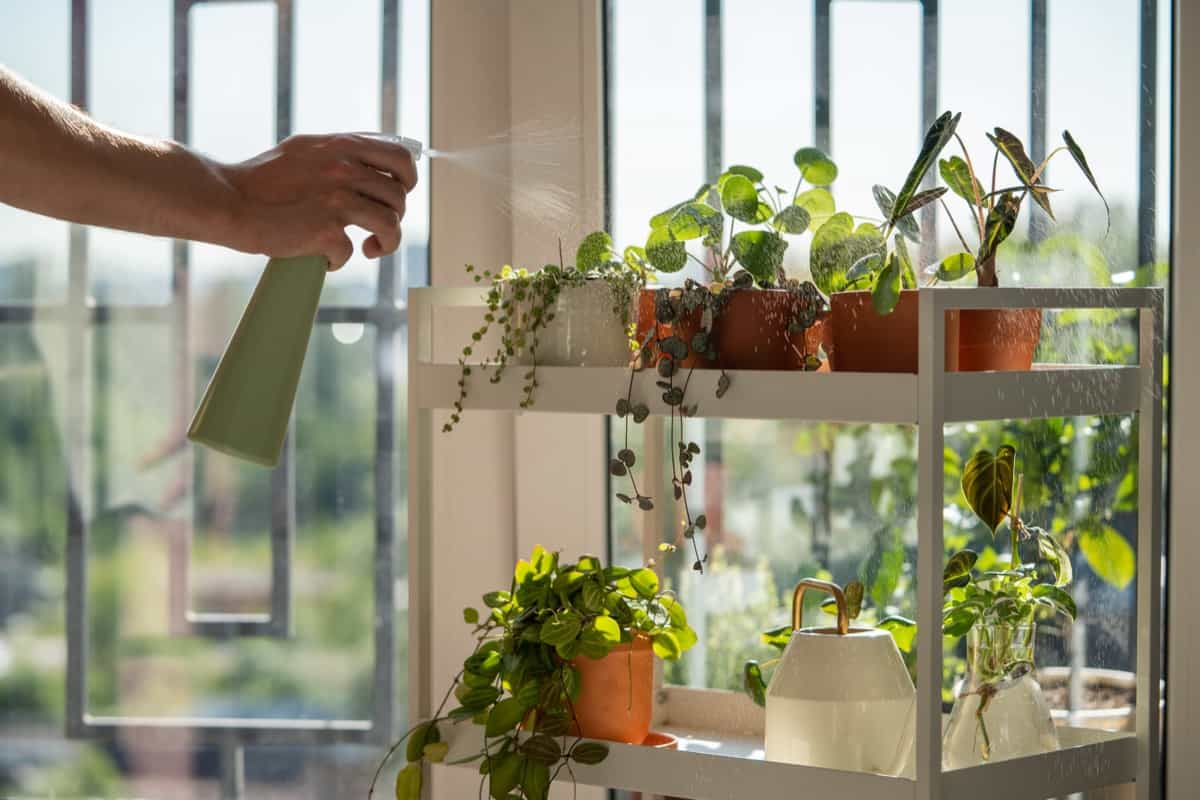
Homemade Insecticide for Houseplants
Why Natural Pest Control is Important for Houseplants
Natural pest control should be a top priority when caring for houseplants. One of the main reasons why natural pest control is crucial for houseplants is because it avoids unnecessary exposure to harmful chemicals. Traditional pesticides often contain toxins that can linger on leaves and soil, posing risks to pets, children, and even us. On the other hand, homemade remedies use ingredients like essential oils or vinegar solutions that are non-toxic yet effective at repelling pests. Additionally, natural pest control promotes biodiversity within your indoor ecosystem.
Chemical treatments may indiscriminately kill off beneficial insects and the pests they target. This disrupts the delicate balance of nature and can lead to further infestation problems. Moreover, relying on natural pest control methods allows us to reduce our environmental impact. Chemical-based sprays contribute to air pollution when released into the atmosphere during application or disposal. Homemade remedies eliminate this concern by utilizing biodegradable and environmentally friendly ingredients.
Common Pests that Harm Houseplants
- Aphids: These small insects love to feast on the sap of tender new growth, causing leaves to curl and become distorted. Look for clusters of these tiny bugs on your plant stems.
- Mealybugs: Recognized by their white cotton-like appearance, mealybugs suck the sap from leaves and stems, leaving behind sticky honeydew and yellowing foliage.
- Spider mites: These minuscule arachnids thrive in dry conditions and spin fine webs between leaves. They puncture plant cells to feed on their contents, resulting in stippled or discolored foliage.
- Scale insects: Usually found on stems and leaf undersides as small bumps or shells, scale insects drain plant juices with piercing mouthparts, leading to weakened growth.
- Fungus gnats: Often mistaken for fruit flies due to their similar appearance, fungus gnats lay eggs in moist soil where larval stages feed on organic matter while damaging roots.
- Whiteflies: Resembling tiny moths when disturbed, whiteflies drain sap from leaves, causing them to turn yellow and eventually die off if not treated promptly.
In case you missed it: Best Natural Pesticides for Citrus Trees: Homemade Organic Sprays for Citrus Fruit Trees
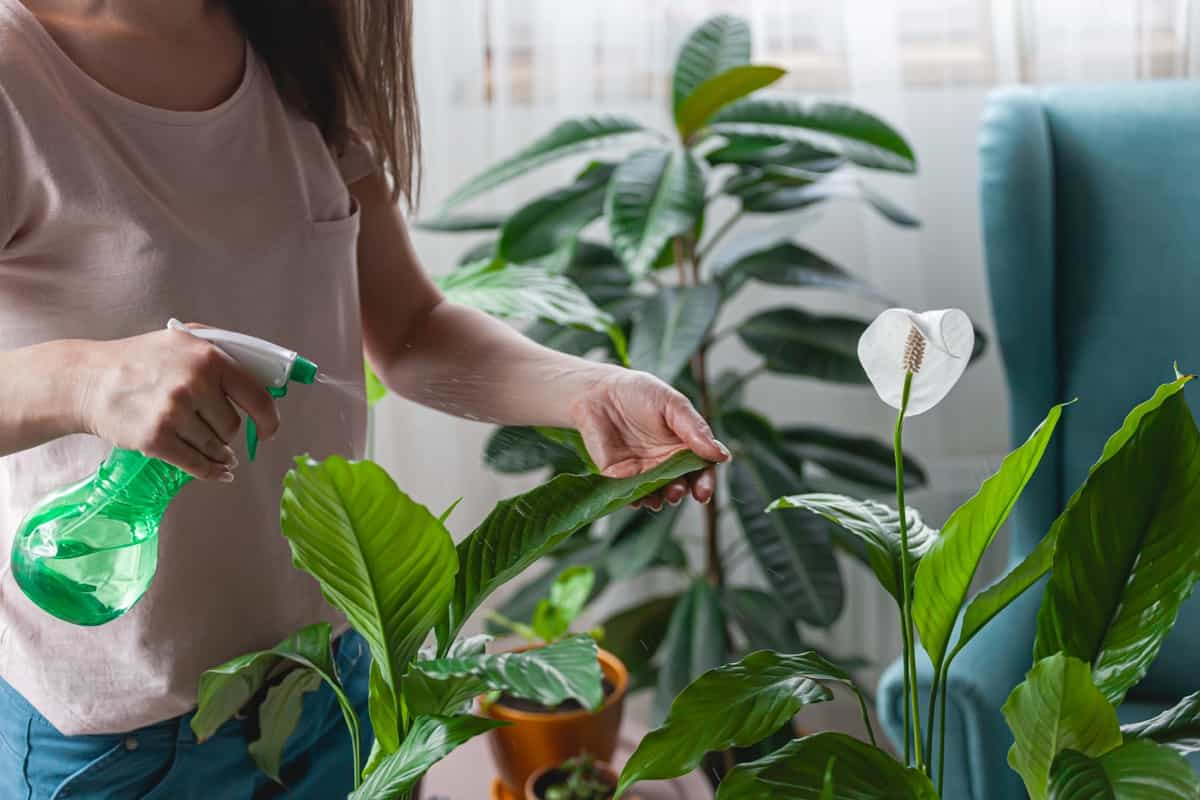
Advantages of Homemade Pest Control for Houseplants
Keeping pests at bay is a top priority when caring for our beloved houseplants. First and foremost, homemade pest control methods for houseplants are natural and safe. Unlike commercial pesticides that may contain harmful chemicals, homemade solutions utilize natural ingredients. This means you won’t have to worry about exposing yourself or your plants to potentially toxic substances.
Another advantage of homemade pest control is its cost-effectiveness. Most DIY remedies use common household items like vinegar, garlic, or essential oils, which are readily available and inexpensive. You’ll save money by making your insecticides while effectively combating pesky critters. Furthermore, homemade remedies promote sustainability by reducing the need for chemical-based products.
Commercial pesticides often come in plastic containers that contribute to environmental pollution. In contrast, DIY solutions encourage eco-friendly practices by utilizing natural ingredients that are biodegradable and plant-friendly. Additionally, homemade pest control allows for customization based on individual needs. You can experiment and adjust the concentration according to the severity of an infestation or the sensitivity of your plants. This flexibility ensures that you’re treating your houseplants in a way that best suits their requirements.
Using Essential Oils as Homemade Pest Control for Houseplants
Essential oils can also be an effective natural pest control method for your houseplants. These oils contain powerful compounds that repel pests and keep them away from your precious greenery. Lavender oil is one of the most popular options for homemade insecticides. Its strong scent deters many common pests, including aphids and whiteflies. Simply dilute a few drops of lavender oil in water, transfer it to a spray bottle, and mist your plants with this fragrant concoction.
In case you missed it: Natural and Organic Ways to Treat Houseplants Leaf Curl: Fix with Effective Home Remedies
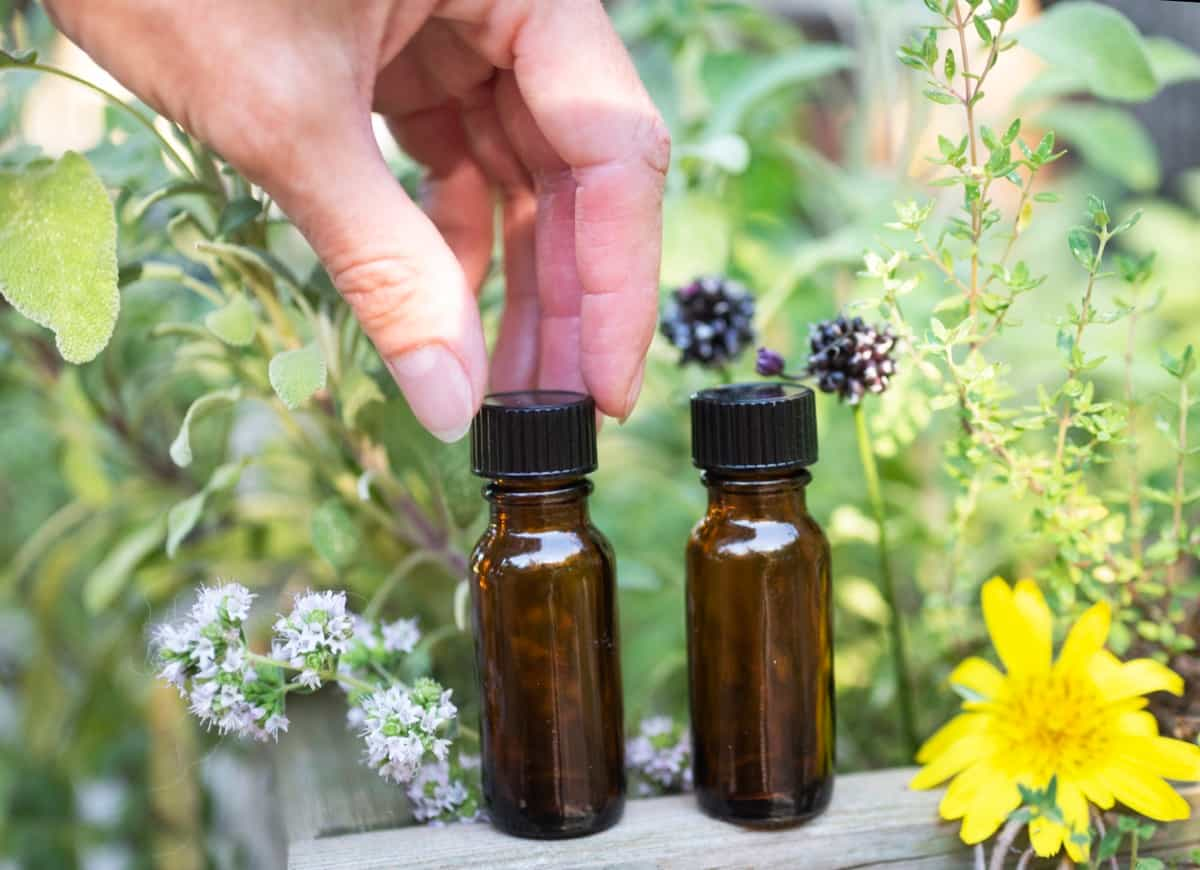
Peppermint oil works wonders in keeping pests at bay. Its strong smell confuses insects like ants and spider mites, making them less likely to infest your plants. Mix 2 to 3 drops of peppermint oil with water and apply it around the base of your plant or on affected leaves. Eucalyptus oil has insect-repellent qualities, making it useful against common plant pests like mealybugs and scale insects. Mix a few drops of eucalyptus oil with water in a spray bottle and apply it to infested areas, or use it preventatively by spraying on unaffected plants nearby.
Neem Oil: A Strong Homemade Insecticide for Houseplants
Not only is neem oil effective at killing and repelling common plant enemies like aphids, mealybugs, and whiteflies, but it also acts as a deterrent for future infestations. To use neem oil as a homemade insecticide for houseplants, simply mix it with water according to the instructions on the bottle. Then, apply it generously to both sides of your plant’s leaves using a spray bottle or sponge. Be sure to target areas where pests are most likely to hide, such as leaf joints and undersides.
In case you missed it: Top 12 Winter Care Tips for Houseplants: Every Gardner Must Know
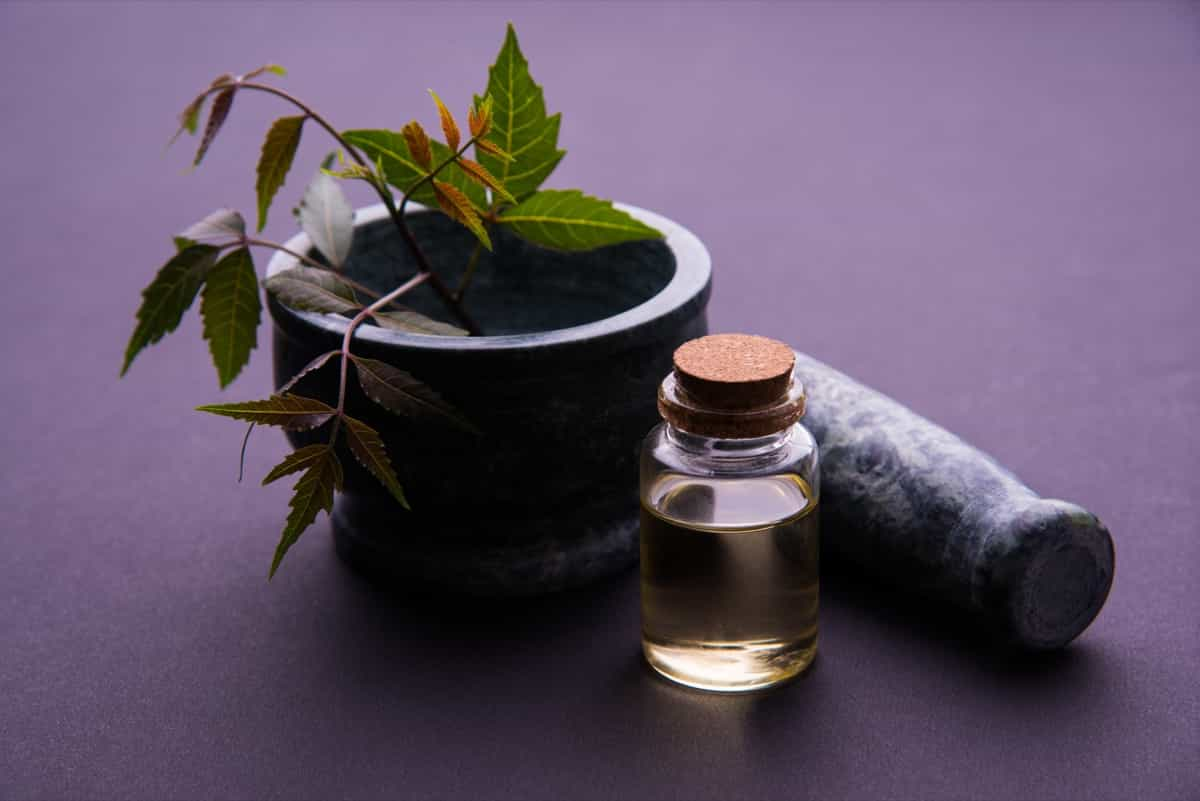
Garlic Spray: A Natural Way to Keep Pests Away from Houseplants
Pests like aphids and spider mites detest the strong smell of garlic, making it an effective deterrent. To create garlic spray, crush several garlic cloves and mix them with water. Leave the mixture overnight so that the oils from the garlic infuse into the water. Strain out any solid pieces, then pour the liquid into a spray bottle. When using garlic spray on your houseplants, thoroughly coat both sides of the leaves and stems where pests are often found. The pungent odor will ward off unwanted visitors without harming your plants or leaving behind toxic residues.
Effective Homemade Pest Control with Soap Spray for Houseplants
One of the most effective and natural ways to control pests on houseplants is by using a homemade soap spray. This simple solution can help eliminate common pests like aphids, spider mites, and whiteflies without harming your plants or the environment. You only need mild liquid soap (such as castile) and water to make your soap spray.
Mix one teaspoon of soap with one quart of water in a spray bottle. Shake well to ensure it’s thoroughly mixed. When applying the soap spray, make sure to cover both sides of the leaves as well as any affected stems or flowers. The soapy solution works by suffocating the insects and disrupting their cell membranes.
Safe and Natural Pest Control Using a Vinegar Solution for Houseplants
Mix equal amounts of water and vinegar to create a vinegar solution. Shake well before each use to ensure the ingredients are properly mixed. Do not overspray or saturate the soil excessively when applying the solution to your houseplants. It’s best to mist the plant leaves lightly and stems where pests are commonly found. The vinegar smell is often enough to deter insects such as aphids, mealybugs, and spider mites.
In case you missed it: 7 Houseplants That Love Bottom Watering: A Beginners Guide
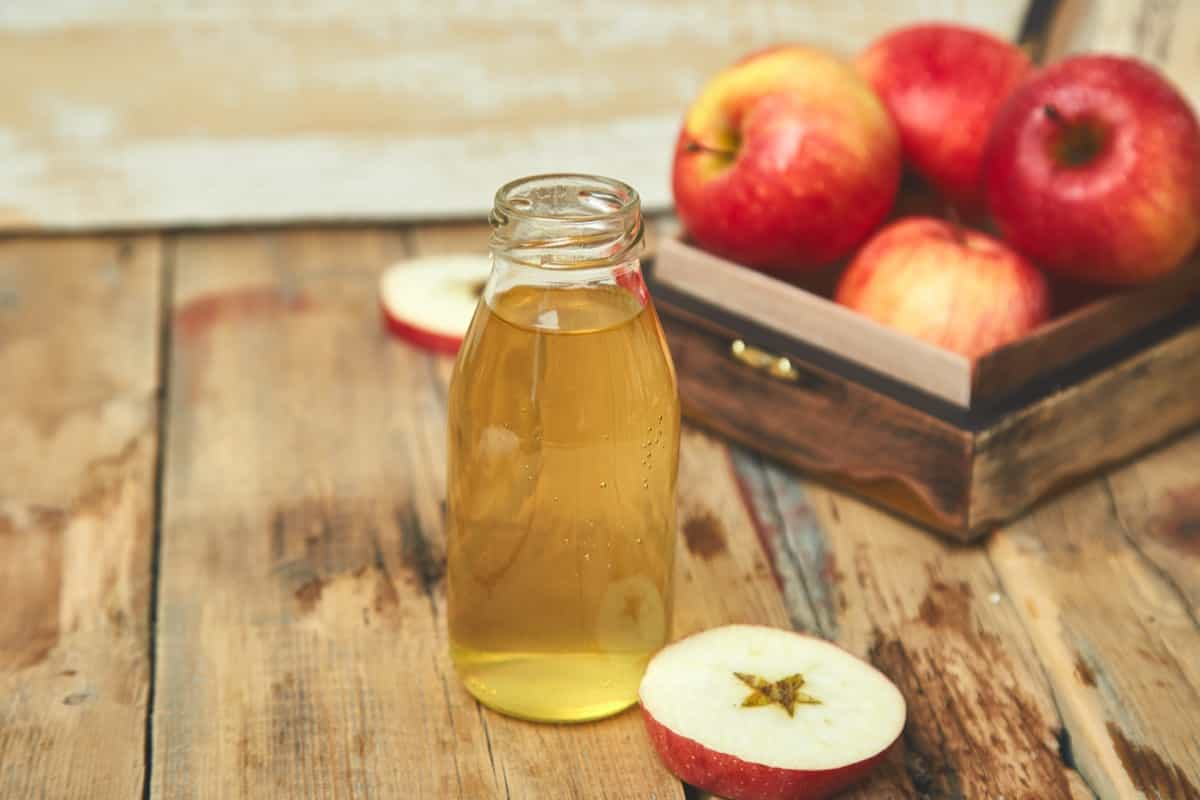
Chili Pepper Spray: A Homemade Remedy to Repel Pests from Houseplants
To create this powerful insect deterrent, mix chopped chili peppers with water and let it sit overnight. You have your very own homemade pest control solution. Not only is chili pepper spray effective against common pests like aphids and spider mites, but it’s also safe for your plants and the environment.
Using Coffee Grounds as a Natural Pest Control Method for Houseplants
The strong scent of coffee will help repel insects like ants, slugs, and snails. These pests are known to damage leaves and feed on plant roots, so using coffee grounds can act as a barrier against them. Another effective method is making a coffee ground spray. Simply steep used coffee grounds in hot water for 24 hours, then strain the liquid into a spray bottle. You can spray this mixture directly onto your houseplants to discourage pests like aphids and spider mites.
Diatomaceous Earth: A Non-Harmful Insecticide for Houseplants
The beauty of diatomaceous earth lies in its physical properties. Under a microscope, this powder appears as sharp shards that can puncture the exoskeletons of insects, dehydrating them and causing their ultimate demise. It’s like creating a barrier that keeps unwanted visitors away from your leafy friends. To use diatomaceous earth as an insecticide for houseplants, simply sprinkle a thin layer over the soil or directly on the leaves where you’ve noticed pest activity.
Companion Planting: Using Beneficial Plants to Protect Houseplants from Pests
You can create a mini ecosystem that helps ward off unwanted insects by pairing certain plants together. For example, Marigolds are known for repelling aphids and nematodes, making them excellent companions for many houseplants. Another great companion plant is the Mint. Its strong scent smells amazing and deters pests such as ants and spiders. Plus, you can enjoy fresh mint leaves for tea or culinary purposes.
If you’re dealing with fungus gnats or other pesky flies around your houseplants, try adding carnivorous plants like Venus flytraps or pitcher plants nearby. These fascinating specimens will happily gobble up any unsuspecting bugs that venture too close. The key to successful companion planting is understanding which plants work well together and which may hinder each other’s growth. Research what types of pests are commonly attracted to your specific houseplant varieties and find suitable companions that naturally repel those insects.
Tips and Safety Measures for Using Homemade Pest Control on Houseplants.
Remember a few important tips and safety measures when using homemade pest control methods for your houseplants. These will help ensure you effectively manage pests while protecting your plants’ health. Always test any homemade insecticide or spray on a small area of your plant before applying it fully. This will allow you to check for any adverse reactions or damage. It’s better to be cautious and prevent harm than risk damaging your plants.
Remember that natural does not mean harmless. Even though homemade remedies use natural ingredients, they can still strongly affect insects and other beneficial organisms like bees or ladybugs. Therefore, it’s crucial to carefully follow the instructions and dosage recommendations when preparing and applying these pest control solutions.
In case you missed it: How to Choose the Suitable Container for Your Houseplants: Key Rules and Ideas
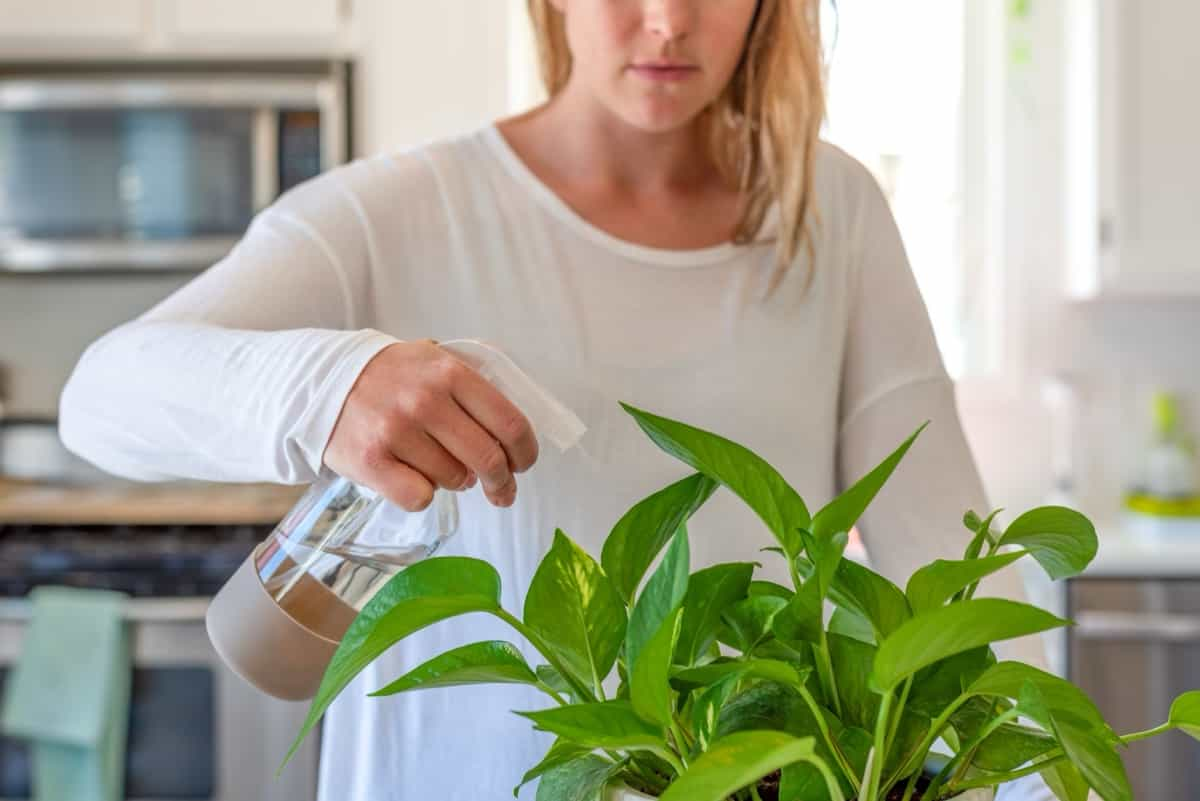
Frequently Asked Questions on Homemade Insecticide for Houseplants
How Do I Use Homemade Insecticide on My Houseplants?
Using homemade insecticides is easy. Dilute the mixture according to the instructions you follow in the recipe or guide. Spray it directly onto your plants, covering both sides of the leaves. For better results, apply the spray early in the morning or late in the evening when insects are most active.
Are Homemade Remedies as Effective as Commercial Insecticides?
While homemade remedies may not be as potent as commercial insecticides, they can still be highly effective in controlling common pests on houseplants. Regular application and proper technique play an important role in their effectiveness.
Are There Any Risks Associated with Using Homemade Insecticide?
When used correctly and in moderation, homemade insecticides pose minimal risk to humans and pets. However, conducting a patch test before applying any new solution to all your plants is essential.
How Long Does It Take for Homemade Insecticides to Work?
The effectiveness will vary depending on pest type, concentration strength, and how frequently you apply it. It might take a few days or even weeks to see noticeable results.
Conclusion
Following some safety measures is important when using homemade pest control on your houseplants. Always test any new mixture or solution on a small plant part before applying it fully. Be cautious with concentrations and applications to prevent any adverse plant effects.
By incorporating these homemade pest control methods into your gardening routine, you can create an environment that promotes healthy growth while keeping those pesky critters at bay. Remember to observe your plants regularly for signs of infestation so you can act promptly. With patience and perseverance, you’ll be able to maintain thriving houseplants without resorting to harsh chemicals or synthetic pesticides.
- Cabbage Seed Germination and Selection
- Broccoli Seed Germination and Selection
- Asparagus Seed Germination and Variety Selection
- Seasonal Flower Gardening: Best Practices for Spring, Summer, Fall, and Winter
- How to Grow Hibiscus from Flower
- Plantation Ideas for Home Decoration: A Beginners Guide
- Flower Garden Designs and Layouts for Beginners
- Planting and Spacing Techniques in Papaya: A Beginner’s Guide
- Growing Gold: Essential Techniques for Planting Pineapples
- How to Make Kalanchoe Plant Bushy: Home Remedies and Solutions
- 11 Reasons Why Your Gardenia is Not Blooming: Home Remedies and Solutions
- Eco Elegance: The Guide to Designing a Drought-Tolerant Landscape
- Gardening on a Slope: Strategies for Hillside Landscaping
- Nourish and Flourish: Top Organic Mulches for Thriving House Plants
- Everything You Want to Know about Indian Mogra Flower: Discover Uses and Growing
- Green Thumb Success: Expert Tips for Cultivating Greenhouse Pumpkins All Year Round
- Maximize Growth & Flavor: The Ultimate Guide to Companion Planting in Herb Gardens
- How to Control Rhododendron Problems Naturally: Home Remedies and Organic Ways to Fix Them
- Natural Magic: The Remarkable Benefits of Cinnamon for Plants
- Best Steps to Revive Dying Tulip with Natural and Organic Treatment
- 10 Reasons Why Your Angel Trumpet is Not Blooming: Remedies and Treatment
- How to Fix Periwinkle Leaf and Flower-Related Problems: Natural Remedies and Solutions
- How to Fix Zinnias Leaf and Flower Problems: Discover Natural and Home Remedies
- Organic Steps to Induce Lemon Tree Flowers: A Comprehensive Guide
- Bloom Booster: Crafting the Perfect Homemade Bougainvillea Fertilizer
- Optimizing Growth: A Guide to Applying NPK Fertilizer for Potted Plants
- 10 Best Homemade Fertilizers for Rubber Plant: DIY Recipes and Application Method
- How to Boost Female Pumpkin Flowers: Effective Steps for More Flowers and High Yields
- Transform Your Indoor Garden: Top Benefits of Pink Salt for Houseplants
- 10 Best Homemade Fertilizers for Peacock Plants (Calathea): Easy DIY Guide
- Unlock Blooms: 9 Reasons Why Your Potted Chrysanthemum is Not Blooming
- 8 Reasons Why Your Potted Hibiscus is Not Blooming: Fix it with Simple Solutions
- Unlock Blooms: 9 Key Reasons Your Potted Frangipani Won’t Flower
- 10 Reasons Why Is My Ice Plant Not Blooming: Remedies and Treatment
- 10 Reasons Why My Potted Hydrangea Not Blooming: Treatment and Remedies
- 10 Reasons Why is My Wisteria Not Blooming: Remedies and Treatment